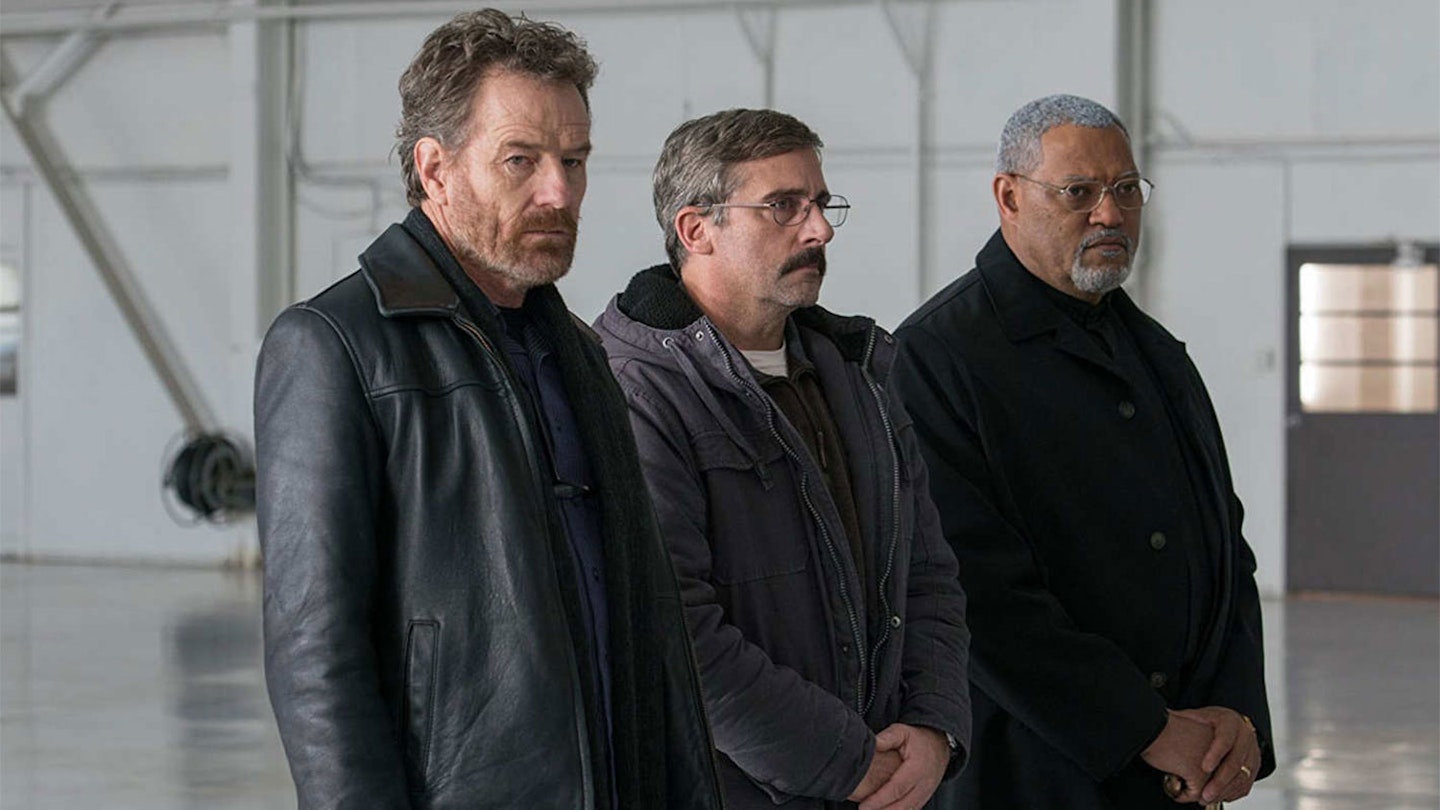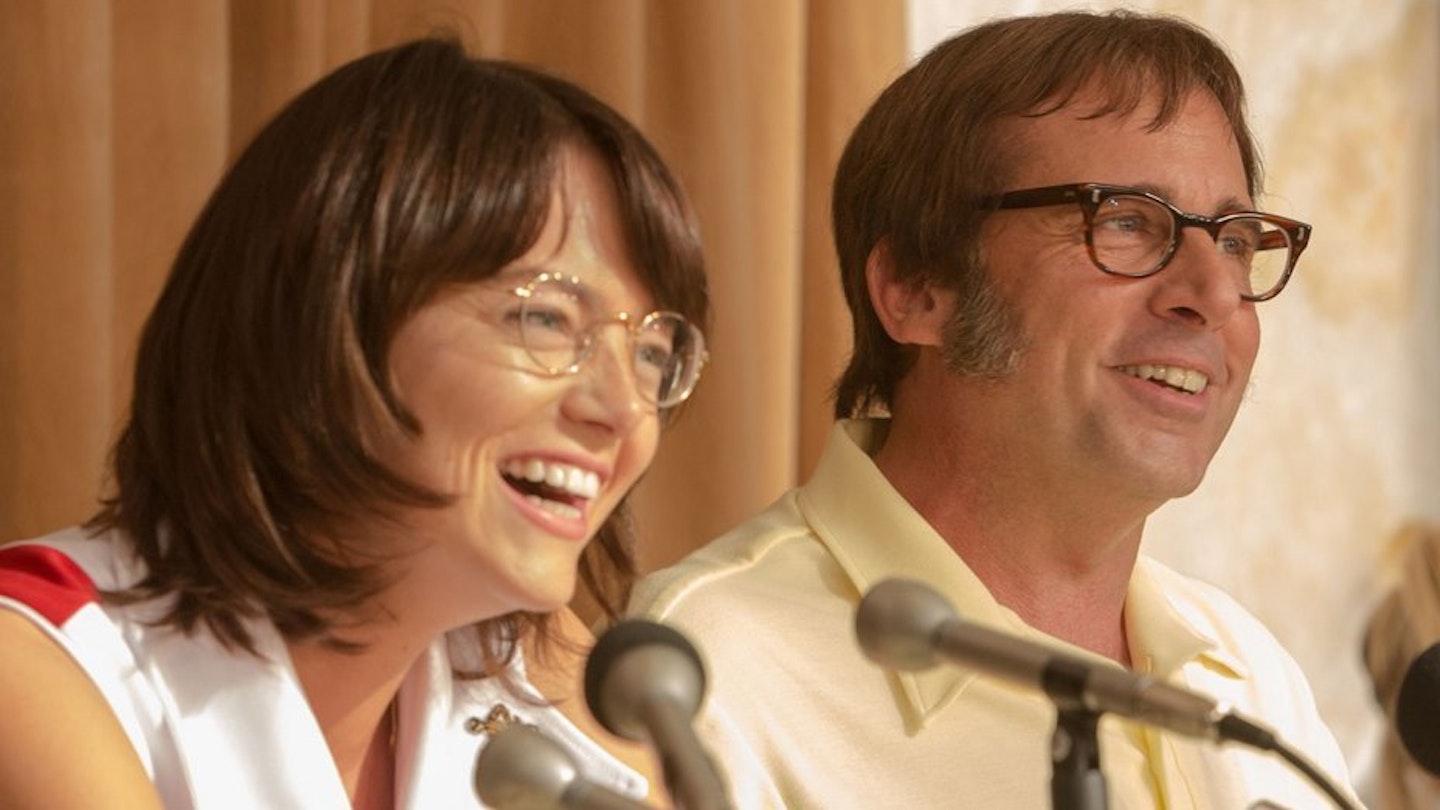It is peak Richard Linklater to make an unofficial sequel to a 44-year-old film he had nothing to do with in the first place. Last Flag Flying is a quasi follow-up to Hal Ashby’s 1973 The Last Detail starring Jack Nicholson, Randy Quaid and Otis Young (both films are based on novels by Darryl Ponicsan). It changes the names of the characters, but keeps similar story threads, moods and a sense of disillusionment. The result is by turns warm, funny, angry and melancholic. The Last Detail edges it, but Linklater has made a worthy successor.
Ashby’s film centres on two US sailors transporting a third to a military prison. The new film shares a similar plot core. This time round, ex-Vietnam buddies Sal Nealon (Bryan Cranston) and Richard Mueller (Laurence Fishburne) accompany Larry ‘Doc’ Shepherd (Steve Carell) to attend the burial of his son Larry Jr, killed in action in Iraq, at Arlington Cemetery. Yet, when Doc learns the true nature of his son’s death, he decides to transport his son back to New Hampshire for a civilian burial. Sal and Richard come along for the ride, along with Larry Jr’s comrade, Charlie Washington (J. Quinton Johnson, holding his own amongst stellar company).
It is hard to think of a better fit than Linklater to pick up Ashby’s mantle: both filmmakers prioritise people over plots, revealing flawed, very human characters in shaggy, free-wheeling stories told with unflashy style. For most of its running time, Last Flag Flying is a car and train trip that allows Linklater to do his juggling-contrasting-moods thing, from hilarious (the three men trying to buy a newfangled mobile phone) to the emotional (a visit to the mother of a dead soldier beautifully played by Cicely Tyson). It’s a film about war that has no truck with flashbacks and helicopters. Linklater raises questions about whether comforting fictions are better than hard truths, and takes a liberal stance toward patriotism and the military. This isn’t gung-ho flag-waving (which might go some way to explaining its lukewarm US reviews). The film respects the pride of those who serve while critiquing the government that has let the central characters down.
It’s a sombre, often cold-looking film — Shane F. Kelly’s cinematography offers grey images of run-down neighbourhoods, cities and train tracks — but the film has heart at its centre. Always a terrific director of actors, Linklater gets great stuff from his cast: Carell, often most impressive when he is muted, is meek and moving, Fishburne is powerful in stillness as a hellraiser-turned-reverend, and Cranston is a force of nature in the Nicholson role. There is a terrific scene where the three men talk in a railway carriage about losing their virginity. It’s both a reference to an incident in The Last Detail and heartland Linklater: characters revealing themselves through talk. And silence.


